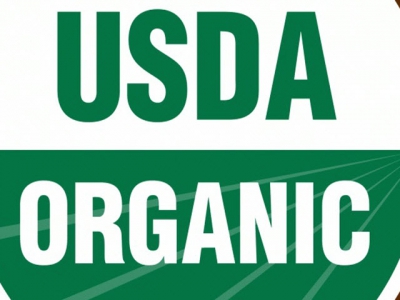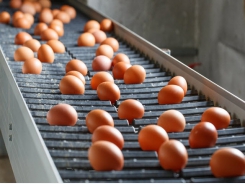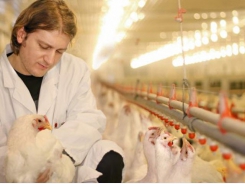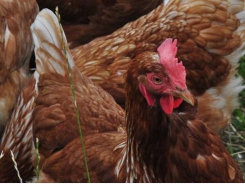Organic livestock rule withdrawal court challenge advances

Court confirms USDA caused organic industry harm by withdrawing organic livestock rules.
The U.S. District Court for the District of Columbia agreed with the Organic Trade Assn. (OTA) that the U.S. Department of Agriculture’s failure to put new organic livestock standards into effect has caused harm to the organic sector and that the association has the legal standing to contest the agency’s withdrawal of the rule, OTA said in a statement Thursday.
“The court has recognized the harm to organic producers, to organic businesses and to the integrity of the organic seal that the USDA’s arbitrary and capricious stance against this important organic standard has already had and the potential for even greater damage,” OTA chief executive officer and executive director Laura Batcha said. “Our case will now advance. We are confident our case is strong, and we look forward to winning this legal battle to uphold organic standards.”
USDA countered that the Organic Food & Production Act (OFPA) does not give the National Organic Program the authority to regulate animal welfare. OTA is arguing that this claim is a radically different view from any administration since the adoption of the National Organic Program and one that cannot be legally supported.
In its ruling, the court rejected USDA’s arguments that the case against the withdrawal of the rule should be dismissed, saying the Organic Livestock & Poultry Practices (OLPP) withdrawal rule "drops the baseline for USDA certification and alters the regulatory landscape to the detriment of OTA’s members. Just as OTA’s members would have had standing to challenge any rollbacks of USDA’s organic certification program before the final OLPP rule, so, too, they have standing now to challenge rollbacks of the USDA’s certification program as constituted after the final OLPP rule.”
In its lawsuit, OTA also argued that USDA violated OFPA by failing to consult with the National Organic Standards Board. In refusing to dismiss this argument, the court said, “The final OLPP rule was the largest and most important organic rule promulgated since the 2010 access to pasture rule, and USDA consulted over its development with the board. As such, … § 6503 may have required USDA to consult on a timely basis with the National Organic Standards Board before finalizing the OLPP withdrawal rule, which is similarly large and important.”
Batcha said, “It’s been almost two years since we stood up on behalf of the entire organic sector to protect organic integrity, advance animal welfare and demand the government keep up with the industry and the consumer in setting organic standards. We will continue to insist that organic standards be robust, consistent and clear in order to stay meaningful.”
The court vacated an order calling for oral argument on the motion and chose to rule solely on the pleadings to advance the case.
In March 2018, USDA withdrew the final OLPP regulation, which was to go into effect in May. The agency contends that OFPA does not give the National Organic Program the authority to regulate animal welfare.
“Significant policy and legal issues were identified after the rule published in January 2017,” USDA said in a statement at the time of the rule's withdrawal. “After careful review and two rounds of public comment, USDA has determined that the rule exceeds the department’s statutory authority and that the changes to the existing organic regulations could have a negative effect on voluntary participation in the National Organic Program, including real costs for producers and consumers.”
Greg Ibach, USDA undersecretary for marketing and regulatory programs, added, “The existing robust organic livestock and poultry regulations are effective. The organic industry’s continued growth domestically and globally shows that consumers trust the current approach that balances consumer expectations and the needs of organic producers and handlers.”
According to USDA reports for 2017, the number of certified organic operations increased 7% domestically and 11% globally. Industry estimates show that organic sales in the U.S. reached almost $47 billion in 2016, reflecting an increase of almost $3.7 billion since 2015.
Related news
Tools

Phối trộn thức ăn chăn nuôi

Pha dung dịch thủy canh

Định mức cho tôm ăn

Phối trộn phân bón NPK

Xác định tỷ lệ tôm sống

Chuyển đổi đơn vị phân bón

Xác định công suất sục khí

Chuyển đổi đơn vị tôm

Tính diện tích nhà kính

Tính thể tích ao




 Crossbred breeding value accuracy depends on genetic correlations
Crossbred breeding value accuracy depends on genetic correlations  Organic industry sues over USDA withdrawal of livestock…
Organic industry sues over USDA withdrawal of livestock…